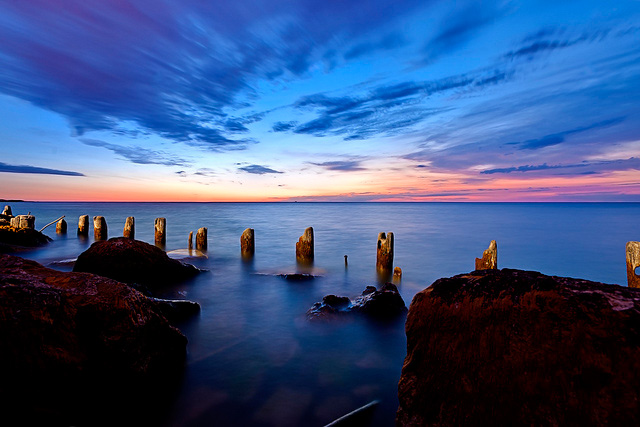Lake Low? Water Levels Could Signal Problems
By JoshMogerman in News on Sep 8, 2012 9:00PM
The summer’s wacky weather is having an impact on Lake Michigan, bringing it to near record low levels. The Great Lake is down 11 inches from last year and only about 18” above the all-time recorded low water level. Sure, we are in the midst of a drought, but that does not fully explain the low levels, as the AP notes:
"Typically water levels drop in the fall and winter and go up in the spring, but we didn't see much of a rise this spring," said Craig Stow, a researcher at the National Oceanic Atmospheric Administration's Great Lakes Environmental Research Lab in Ann Arbor. "It's always a balance between evaporation and precipitation, and when the water is warm, you get a lot of evaporation."Sounds ominous, but what does that mean to your day-to-day?Lake Michigan now is 23 inches below the long-term average, said Mark Breederland, an extension educator for the Michigan Sea Grant. And lakes Michigan and Huron are in the midst of a decade-long stretch of below-average water levels, said hydrologist Keith Kompoltowicz at the U.S. Army Corps of Engineers' Detroit District.
Well, it can mess up your time on the Lakeshore. Yesterday we were hearing that the low Lake levels might imperil the ever-popular Flugtag event, though in the end it succumbed to high waves and poor “marine conditions” today.
If you live in south suburban Sauk Village, the low levels are complicating bids to get access to Lake water to replace wells contaminated with vinyl chloride.
Michigan Public Radio points out that while water levels fluctuate over time, the current low cycle has already lasted twice as long as the historic Lake level nadir a half-century ago. That may imply climate change, as predicted, rearing its ugly head in the Great Lakes. And that portends very bad things in the longer term, like trashing already troubled commercial ports and scouring away beloved places representing chunks of the region’s unique ecosystem as diminished ice and increased winds quicken shore erosion. No doubt, plenty of long-debated factors impact Lake levels---everything from weather, to industrial and Chicago River water diversions, maybe even erosion in the St. Clair River and a host of other factors---but the trend is a troubling one for Chicago and the broader region. We need our water!
